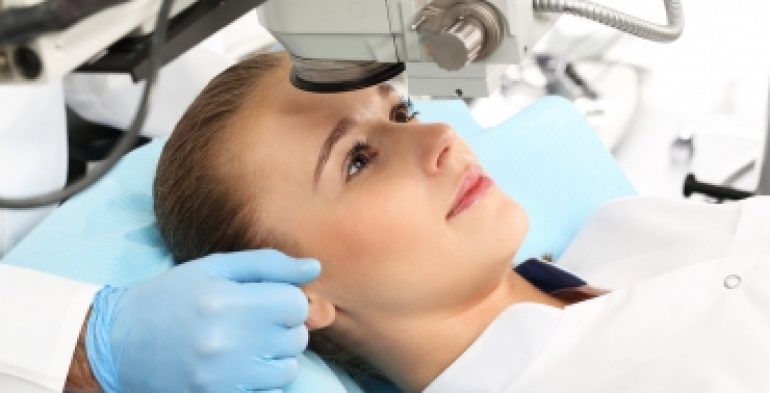
Corrective eye surgery is a science and an art – patients and doctors should agree the desired results before surgery
Laser eye surgery is one of the most common surgical procedures performed. It is quick, effective and life-changing for people who are able to stop wearing glasses and contact lenses, after surgery. In fact, it is now so safe, accessible and affordable that patients may not be aware of the important need to understand the type of surgery and the options, the experience of the doctor performing the procedure, the expected quality of the results, and any possible side effects.
In the UAE, prospective candidates for laser surgery need to be better informed, and use the latest technology by highly experienced consultants. if they are to get the best possible results, according to Dr. Osama Giledi, Consultant Ophthalmologist and a Specialist in Cornea and Refractive Vision Correction Surgery at Moorfields Eye Hospital Dubai.
How to choose the right laser corrective surgery?
Patients plan to have refractive eye surgery only once in their lives and so they should make sure that they are getting the right treatment to get the desired result.
All laser vision correction surgeries work by reshaping the cornea, the clear window at the front of the eye, so that light traveling through it is properly focused onto the retina located in the back of the eye. There are two main types of surgery – LASIK and LASEK/PRK. Traditional LASIK includes the
use of Microkeratome (Blade) to create the flap in the LASIK procedure, however, recent technology IntraLase procedures are safer and more accurate. Prospective patients need to be clear on what procedure would best suit their needs, give them the desired outcome and improved vision. They need to be sure that they are working with the right procedure, and the best technology in expert hands, before committing. Every patient should be assessed thoroughly with a comprehensive eye examination and a review of medical history to ensure they are appropriate candidates for the surgery.
Dr. Osama Giledi, who has performed more than 23,000 laser eye correction surgeries, says: “Laser eye correction is safe and complications are rare, as long as you are in expert hands. All laser surgeons should be trained, qualified and experienced in the selected procedure.
Advanced technology
Moorfields Eye Hospital Dubai uses the most advanced technology for laser refractive surgery for vision correction, providing improved performance for patients in terms of speed, precision, safety and comfort, and often allowing faster visual recovery. Moorfields is among the first private hospitals in the Middle East to invest in the Schwind Amaris 750S – the leading technology for laser treatment.
Dr. Osama concludes: “Corrective eye surgery is a science and an art – the results are literally in the eye of the beholder. In order for patients to avoid problems and get the results they are expecting they should have a very clear understanding of the procedure and what outcomes to expect through discussions with a doctor experienced in the procedure.”
Vision correction for less
Moorfields is currently offering patients (minimum age 18) a 20% reduction in charges for vision correction procedures; to qualify, the assessment must be booked and attended by 31st January 2016 and the surgery must be carried out by February 29th, 2016. The reduction offer is subject to the assessment to determine suitability for the procedure, and terms & conditions.
About Moorfields Eye Hospital Dubai
Moorfields Eye Hospital Dubai (MEHD) is the first overseas branch of Moorfields Eye Hospital NHS Foundation Trust, the oldest and one of the largest centres for ophthalmic treatment, teaching and research in the world. Located at the Al Razi Medical Complex in Dubai Health Care City, the facility provides day case surgery and outpatient diagnostic and treatment services, for a variety of surgical and non-surgical eye conditions. MEHD will also raise standards for research and teaching in the region. MEHD is owned and managed by the NHS Foundation Trust, and maintains close links with London, to ensure that patients in the GCC receive the best eye care treatment in the world.










